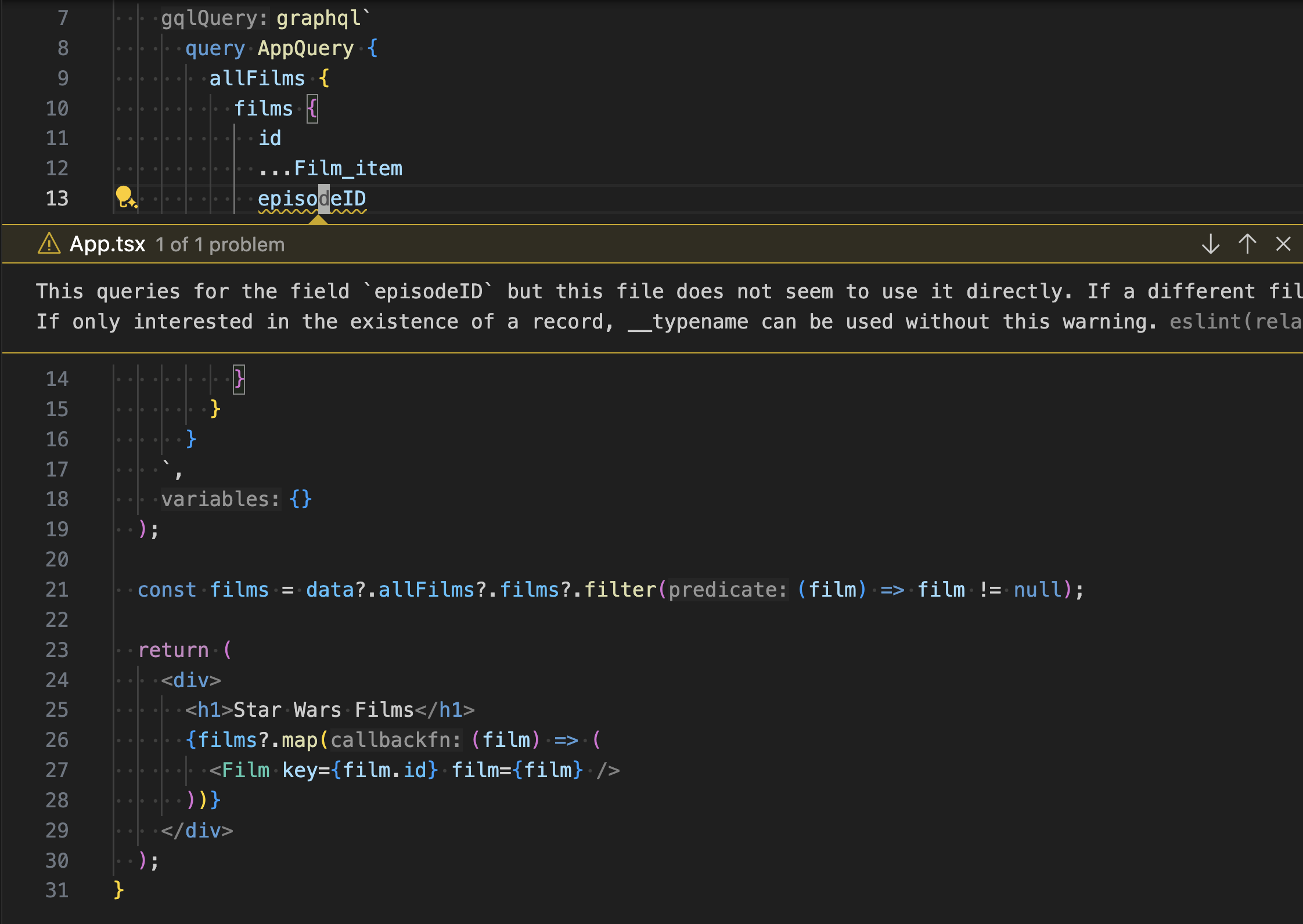Relay ESLint Plugin
One of the unique features enabled by Relay is the ability to statically detect unused GraphQL fields. This can categorically prevent the "append only query" problem that is a common dysfunction in many GraphQL clients.

This validation, and other helpful checks, are enabled by Relay's ESLint plugin eslint-plugin-relay. The Relay ESLint plugin is a key part of the Relay developer experience.
Installation
Assuming you have ESLint already installed, you can add the Relay ESLint plugin to your project by running:
npm install --save-dev eslint-plugin-relay
Then update your ESLint configuration to include the plugin:
import relay from 'eslint-plugin-relay';
export default [
// ... other ESlint Config
{
plugins: { relay },
rules: relay.configs['ts-recommended'].rules,
},
];
Rule Descriptions
The following validation rules are included in the Relay ESLint plugin:
relay/unused-fields
Ensures that every GraphQL field referenced is used within the module that includes it. This helps enable Relay's optimal data fetching.
relay/no-future-added-value
Ensures code does not try to explicitly handle the "%future added value" enum variant which Relay inserts as a placeholder to ensure you handle the possibility that new enum variants may be added by the server after your application has been deployed.
relay/graphql-syntax
Ensures each graphql tagged template literal contains syntactically valid GraphQL. This is also validated by the Relay Compiler, but the ESLint plugin can often provide faster feedback.
relay/graphql-naming
Ensures GraphQL fragments and queries follow Relay's naming conventions. This is also validated by the Relay Compiler, but the ESLint plugin can often provide faster feedback.
relay/function-required-argument
Ensures that readInlineData is always passed an explicit argument even though that argument is allowed to be undefined at runtime.
relay/hook-required-argument
Ensures that Relay hooks are always passed an explicit argument even though that argument is allowed to be undefined at runtime.
relay/must-colocate-fragment-spreads
Ensures that when a fragment spread is added within a module, that module directly imports the module which defines that fragment. This prevents the anti-pattern when one component fetches a fragment that is not used by a direct child component. Note: This rule leans heavily on Meta's globally unique module names. It likely won't work well in other environments.
Suppressing rules within graphql tags
The following rules support suppression within graphql tags:
relay/unused-fieldsrelay/must-colocate-fragment-spreads
Supported rules can be suppressed by adding # eslint-disable-next-line relay/name-of-rule to the preceding line:
graphql`
fragment foo on Page {
# eslint-disable-next-line relay/must-colocate-fragment-spreads
...unused1
}
`;
Note that only the eslint-disable-next-line form of suppression works. eslint-disable-line doesn't currently work until graphql-js provides support for parsing Comment nodes in their AST.
Contributing
If you wish to contribute to the Relay ESLint plugin, you can find the code on GitHub at relay/eslint-plugin-relay.